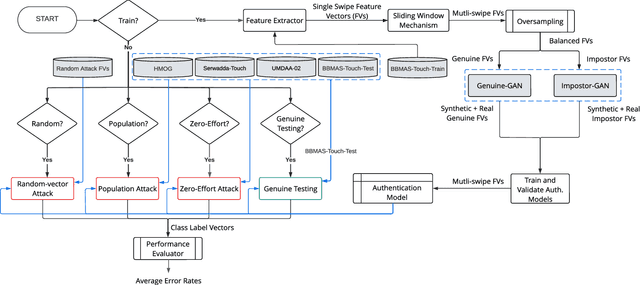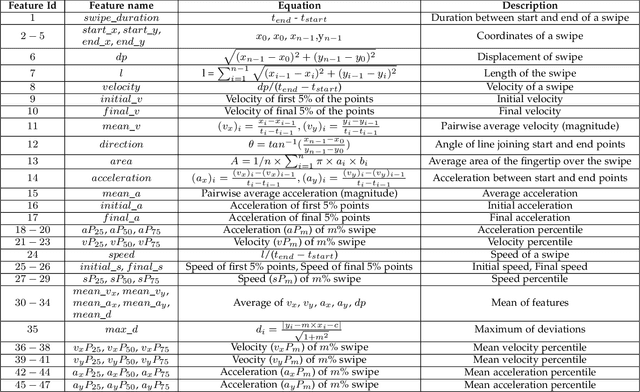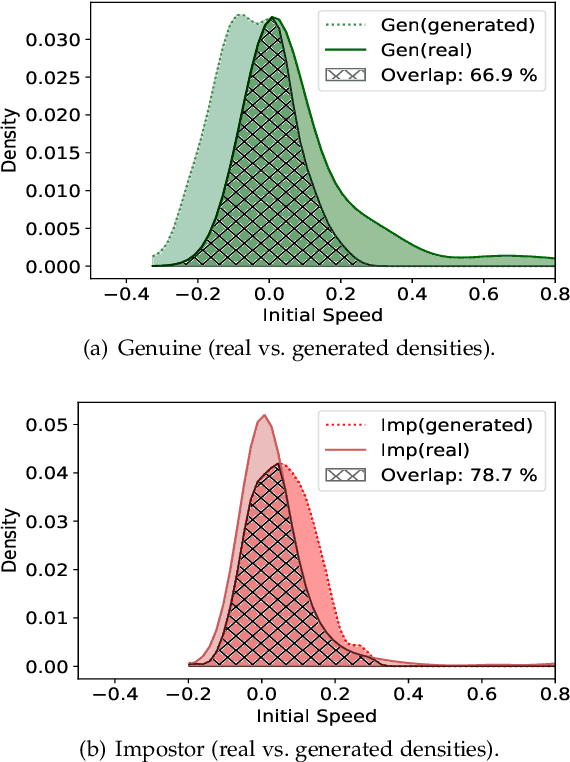GANTouch: An Attack-Resilient Framework for Touch-based Continuous Authentication System
Paper and Code
Oct 02, 2022



Previous studies have shown that commonly studied (vanilla) implementations of touch-based continuous authentication systems (V-TCAS) are susceptible to active adversarial attempts. This study presents a novel Generative Adversarial Network assisted TCAS (G-TCAS) framework and compares it to the V-TCAS under three active adversarial environments viz. Zero-effort, Population, and Random-vector. The Zero-effort environment was implemented in two variations viz. Zero-effort (same-dataset) and Zero-effort (cross-dataset). The first involved a Zero-effort attack from the same dataset, while the second used three different datasets. G-TCAS showed more resilience than V-TCAS under the Population and Random-vector, the more damaging adversarial scenarios than the Zero-effort. On average, the increase in the false accept rates (FARs) for V-TCAS was much higher (27.5% and 21.5%) than for G-TCAS (14% and 12.5%) for Population and Random-vector attacks, respectively. Moreover, we performed a fairness analysis of TCAS for different genders and found TCAS to be fair across genders. The findings suggest that we should evaluate TCAS under active adversarial environments and affirm the usefulness of GANs in the TCAS pipeline.
 Add to Chrome
Add to Chrome Add to Firefox
Add to Firefox Add to Edge
Add to Edge